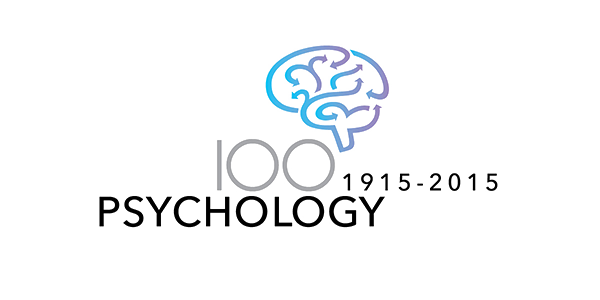
Kenneth Kotovsky
Professor Emeritus, Psychology
Areas of Expertise
Cognitive Science
Bio
The experience of committing our mental resources to solving a problem can be extremely engaging. The study of how people solve problems is the problem that engages me and is the major focus of my research.
One of the questions that we try to answer is what determines problem difficulty. One method we use is to collect verbal protocols and time subjects' moves as they solve problems, obtaining detailed information about their solution processes and problem representations. Another approach has subjects solve problems while performing a concurrent working memory loading task. One of our findings in this area is that people's limited working memory capacity controls their ability to think about problems and plan moves. We often test our conclusions be constructing computer models of the cognitive processes that we believe subjects use, and comparing the performance of the models with that of our human subjects solving the same problems.
Another of our goals is to understand how people overcome difficulty by mobilizing resources and developing competence on a problem. We have observed that people are often very tentative and uncertain when initially working on a problem, but then exhibit almost "expert" level performance toward the end. We have been investigating this sudden transition to see what knowledge or skill has been acquired that much of what subjects learn during problem solving is learned without their being able to indicate any awareness of the learning. We are currently trying to investigate how this non-conscious learning occurs.
A practical question that emerges from the above research is what features of problems determine the skill transfer between problems. A related area of application is the study of how engineering design problems can be solved. Along with collaborators in engineering, I have begun to examine the cognitive problem-solving processes that underpin engineering design and how they can be made more effective. These represent some of the research issues that have begun to emerge from our attempts to understand human problem-solving.
Publications
Kotovsky, K., & Simon, H. A.; Why Are Some Problems Really Hard: Explorations in the Problem Space of Difficulty; Cognitive Psychology, 22, 143-183, 1990.
Campbell, M., J. Cagan, and K. Kotovsky, Agent-Based Synthesis of Electro-Mechanical Design Configurations, ASME Journal of Mechanical Design, 122:1, pp 61-69, 2000.
Cagan, J., Kotovsky, K., Simon, H. A., Scientific Discovery and Inventive Engineering Design: Cognitive and Computational Similarities. Formal Engineering Design Synthesis, Antonsin, E. and Cagan, J. eds. Cambridge University Press, Cambridge, pp442-465, 2001.
Klahr, D. & Kotovsky, K., A life of the mind: Remembering Herb Simon. APS Observer 14, no. 4: 2001.
Kotovsky, K. " Problem-solving, Large/Small, Hard/Easy, Conscious/Non- conscious Problem-space/Problem-solver,: The Issue of Dichotomization. In J. Davidson & R. Sternberg (Eds.), The Psychology of Problem Solving, Cambridge University Press. 2003.
Campbell, M., Cagan, J., and Kotovsky, K. The A-Design Approach to Managing Automated Design Synthesis, Research in Engineering Design, Vol. 14, 1. pp, 12-24, 2003.
Moss, J., Kotovsky, K. & Cagan, The Role of Functionality in the Mental Representations of Engineering Students: Some Differnces in the Early Stages of Expertise. Cognitive Science, 30, 65-93
Moss, J., K. Kotovsky, and J. Cagan, “The Influence of Open Goals in the Acquisition of Problem Relevant Information”, Journal of Experimental Psychology: Learning, Memory, and Cognition, Vol. 33, No. 5, pp. 876-891, 2007.
Moss, J., K. Kotovsky, and J. Cagan, "When is a Hint Most helpful? The Relationship Between Impasses, Fixation and Implicit Hints", Journal of Experimental Psychology: Learning, Memory, and Cognition, 2010.
Moss, J., K. Kotovsky, and J. Cagan, "The Effect of Incidental Hints When Problems Are Suspended Before During Or After An Impasse," Journal of Experimental Psychology: Learning, Memory, and Cognition, 2010.
Fu, K., J. Chan, J. Cagan, K. Kotovsky, C. Schunn and K. Wood, “The Meaning of “Near” and “Far”: The Impact of Structuring Design Databases and the Effect of Distance of Analogy on Design Output,” ASME Journal of Mechanical Design, Vol. 135, No. 2, pp. 021007-1-12, 2013.
Fu, K., Cagan, J., Kotovsky, K. "Design Team Convergence: The Influence of example solution Quality" ASME Journal of Mechanical Design Nov. 2010, Vol. 132.
McComb, C., J. Cagan, and K. Kotovsky, “Rolling with the Punches: An Examination of Team Performance in a Design Task Subject to Drastic Changes,” Design Studies, Vol. 36, January, pp. 99-121, 2015.
Sio, U., Kotovsky, K., and J. Cagan, “Fixation or Inspiration? A Meta-Analytic Review of the Role of Examples on Design Processes,” Design Studies, Vol. 39, pp. 70-99, 2015.
McComb, C., J. Cagan, and K. Kotovsky, “Lifting the Veil: Drawing Insights about Design Teams from a Cognitively-inspired Computational Model,” Design Studies, Vol. 40, pp. 119-142 , 2015.
McComb, C., J. Cagan, and K. Kotovsky, “Drawing Inspiration From Human Design Teams for Better Search and Optimization: The Heterogeneous Simulated Annealing Teams Algorithm,” submitted to: ASME Journal of Mechanical Design, 2015.
